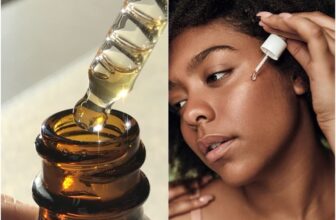Why You Should Not Overuse Retinol
When it comes to skincare, there is a need to balance the risks and benefits of the skincare products you use. One such product is the Retinol. Retinol, a form of vitamin A, has gained immense popularity in the skincare industry for its impressive ability to combat signs of aging, acne, and other skin concerns.
Often hailed as the pinnacle of skincare, retinol offers a multitude of advantages. These benefits encompass heightened skin cell generation, pore decongestion, exfoliation, and augmentation in collagen production, effectively combatting the emergence of fine lines and wrinkles. Plus, it’s available in strengths ranging from prescription to over-the-counter and formats like serums and moisturizers. This potent ingredient can indeed deliver remarkable results when used correctly, but like many good things, it’s possible to have too much of it.
Ahead, we will explore the benefits of retinol, its potential drawbacks, and why overusing it can be detrimental to your skin’s health.
The Benefits of Retinol
Retinol offers a range of skincare benefits. It stimulates collagen production and enhances cell turnover, resulting in smoother, firmer skin with reduced fine lines and wrinkles. Additionally, it effectively manages acne by unclogging pores, reducing inflammation, and regulating oil production.
Retinol’s ability to fade hyperpigmentation, dark spots, and melasma promotes a brighter complexion and an even skin tone. Moreover, it contributes to smoother skin texture by keeping pores clear and minimizing their size. Using retinol in your skincare routine from an early age can serve as a proactive measure to delay the onset of visible signs of aging.
 Photo: Medik8
Photo: Medik8 Medik8 Crystal Retinal®
The Risks of Overusing Retinol
While the benefits of retinol are impressive, it’s crucial to exercise caution when using this ingredient. Overusing retinol can result in various undesirable consequences, including skin irritation and heightened sensitivity, characterized by redness, peeling, dryness, and an increased vulnerability to sunlight, all of which may counteract your skincare objectives.
Furthermore, excessive retinol application can paradoxically lead to breakouts, particularly during the initial stages of use as your skin adapts to the ingredient. Additionally, overuse may cause excessive dryness by disrupting your skin’s natural moisture barrier. Another concern is the heightened sun sensitivity induced by retinol, which elevates the risk of sunburn and potential long-term damage such as fine lines, pigmentation issues, and even skin cancer.
 Photo: Spacenk.
Photo: Spacenk. Sunday Riley A+ High-Dose Retinoid Serum
Also, persistent and excessive retinol use can compromise your skin’s protective barrier, rendering it more susceptible to environmental stressors and exacerbating irritation.
Finding the Right Balance in Using Retinol
To maximize the benefits of retinol while minimizing its potential drawbacks, it’s vital to establish a balanced skincare routine. Start by easing into it gradually, commencing with a lower concentration of retinol and incrementally increasing potency as your skin acclimates. During the daytime, consistently apply broad-spectrum sunscreen to shield your skin from harmful UV rays, a crucial step when incorporating retinol into your regimen.
Additionally, maintain your skin’s moisture balance by using a hydrating moisturizer to combat dryness. Overuse of retinol is a common pitfall, so it’s advisable to consult with a dermatologist to determine the ideal frequency based on your skin type and specific concerns. Lastly, be attentive to your skin’s reactions; if you notice excessive irritation or sensitivity, it’s prudent to reduce the frequency of retinol use accordingly.
 Photo: Space NK
Photo: Space NK Skin Rocks Retinoid 1 – Vitamin a Face Serum
How to Treat Retinol Burn or Damage
If you experience retinol burn or damage, there’s no need to panic. To address it effectively, follow these steps: Firstly, discontinue retinol use immediately and give your skin time to heal. Next, switch to a gentle, hydrating cleanser to prevent further irritation. Apply a nourishing moisturizer to soothe and repair your skin’s barrier.
During this time, it’s advisable to temporarily avoid using retinol until your skin has fully recovered. If the irritation persists or worsens, seeking guidance from a dermatologist is advisable. They can provide expert advice on suitable treatments and adjustments to your skincare routine to promote healing and restore your skin’s health.
 Photo: Beauty Pie
Photo: Beauty Pie Dr. Sam’s Flawless Nightly Eye Serum
To harness the potential benefits of retinol while minimizing the risks, it’s essential to use it thoughtfully, in consultation with a skincare professional. Remember, achieving beautiful and healthy skin is a marathon, not a sprint, and a well-balanced skincare routine will ultimately yield the best results.
Photo: Aja Koska / Getty Images






